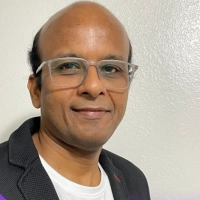What Personal Leadership Philosophies Exist in Healthcare?
Have you ever wondered what personal leadership philosophies drive the most successful healthcare leaders? In this article, top insights from a CEO and a Medical Director are shared to provide a glimpse into the minds of those at the forefront of the industry. Discover why balancing empathy with autonomy is essential and how ensuring transparency and trust can foster a thriving healthcare environment. With a total of six expert insights, this piece offers valuable perspectives to elevate any leadership approach.
- Balance Empathy With Autonomy
- Embrace an Entrepreneurial Mindset
- Lead by Actions, Not Words
- Create Supportive Partnerships
- Leverage Personal Recovery Experience
- Ensure Transparency and Trust
Balance Empathy With Autonomy
For me, it's all about balancing empathy with autonomy. Leading with empathy means understanding and valuing each person's unique perspective, challenges, and strengths. And it's especially vital in a remote setup like ours at Carepatron.
This goes hand-in-hand with giving team members the autonomy to approach their work in ways that make the most sense to them. Tried and true, when people feel supported and trusted to make decisions independently, they bring their best ideas forward.
This combination fosters a culture of mutual respect, where everyone is motivated and engaged, and it works superbly in keeping Carepatron the success that it is.

Embrace an Entrepreneurial Mindset
I believe embracing an entrepreneurial mindset throughout my career has been instrumental in my success as a healthcare leader. From a young age, I was driven by a spirit of innovation, which continued as I served in the Army National Guard and later founded Riveraxe LLC. This mindset has consistently enabled me to solve complex problems creatively and adaptively.
For instance, during the inception of Riveraxe, I assembled a team of seasoned professionals to rethink health information management. Recognizing our clients' unique challenges allowed us to develop custom solutions rather than a one-size-fits-all approach. This focus on understanding client needs not only built our reputation but also drove impactful results.
Additionally, fostering an environment where staff are encouraged to voice their concerns and suggestions has been crucial. Creating a culture that values open communication and collaboration has led to better stakeholder engagement and has facilitated smoother transitions during technological implementations, such as integrating personal health records and remote-monitoring technologies.
Lead by Actions, Not Words
One thing I've always believed in as a healthcare leader is leading by actions—not just words. It's not enough to manage from behind a desk or issue instructions from afar. I make it a priority to walk the floor, check in with the team, and be hands-on whenever possible. By being present and actively involved, I can understand the challenges and successes in real-time. This kind of visibility not only shows the team I'm committed to their success, but it also strengthens trust and collaboration, creating a more cohesive environment for everyone.
There have been times when things get chaotic, like during unexpected surges, where it's not just about directing; it's about jumping in alongside the team. When they see me working shoulder-to-shoulder with them, it reassures them that we're all in this together. It's in these moments that words fall short, and action truly matters. Helping out—whether it's assisting with patients or making quick decisions on the fly—shifts the energy and keeps everyone focused. Leading by example in this way not only builds a stronger team but also improves the care we provide for our patients. As the saying goes, "Walk the talk."

Create Supportive Partnerships
One personal leadership philosophy that has been crucial to my success is the focus on creating supportive partnerships. In my 27 years in the health and wellness industry, I've come to realize that change happens when you build a genuine connection with those you guide. At Smaller-U Weight Loss, we ensure that each client feels supported, not just in terms of their physical goals but emotionally and mentally as well.
I've seen the impact of this approach through our personalized weight-loss programs. By providing custom meal plans and workouts, along with emotional support, our clients have successfully redefined their relationships with food, resulting in sustainable long-term health improvements. This partnership mindset encourages active participation from clients, empowering them to make lifestyle changes that last.
I also focus on accountability, both in my role as a leader and in my clients' journeys. I hold myself liable for providing the best guidance and expect the same commitment from my clients towards their health goals. This shared accountability fosters a sense of trust and commitment, driving us towards collective success.
Leverage Personal Recovery Experience
Leading from personal recovery experience has fundamentally shaped my approach at Hollywood Hills Recovery. Having navigated the challenges of addiction and cultural assimilation myself, I understand that authentic leadership in healthcare requires more than clinical expertise—it demands vulnerability and lived experience. This perspective enables me to create treatment protocols that address not just the addiction but the deeply personal struggles with identity and belonging that often fuel substance abuse.
The most transformative aspect of this philosophy lies in how we structure our recovery programs around the concept of shared growth. Instead of maintaining traditional hierarchical boundaries, we've created a unique mentorship model where every team member, regardless of position, participates in regular sharing sessions about their own healing journeys. This approach, while unconventional in healthcare leadership, has led to remarkably higher engagement rates among both staff and clients as it transforms the recovery process from a clinical procedure into a collective journey of healing and understanding.

Ensure Transparency and Trust
Hello,
My name is Riken Shah, Founder & CEO of OSP Labs.
Reflecting on my experience as a health tech leader, I think ensuring transparency and trust in the workplace is a significant leadership philosophy that I follow. I've been in leadership roles for over a decade now, but when I started, employees' attitudes toward their jobs were different compared to today. Now, staff at any workplace look for transparency in communication and empathy from their employers.
I believe maintaining transparency in communication enables your team to get time and support. They can utilize the time to innovate, make strategic decisions, and grow at a steady pace but with vision. Being transparent means sharing your problems and success stories with your team without a filter. This approach creates a dedicated, resilient, and highly motivated team.
Not just transparency—as a leader, you must gain the trust of your employees. If your team doesn't trust you, the collaboration is futile. Trust should be both ways. I guess this is the secret behind my team's agile performance. If you trust your team, the chances are high that your team will bring new ideas and perform with motivation.
Best regards,
Riken Shah
https://www.osplabs.com




